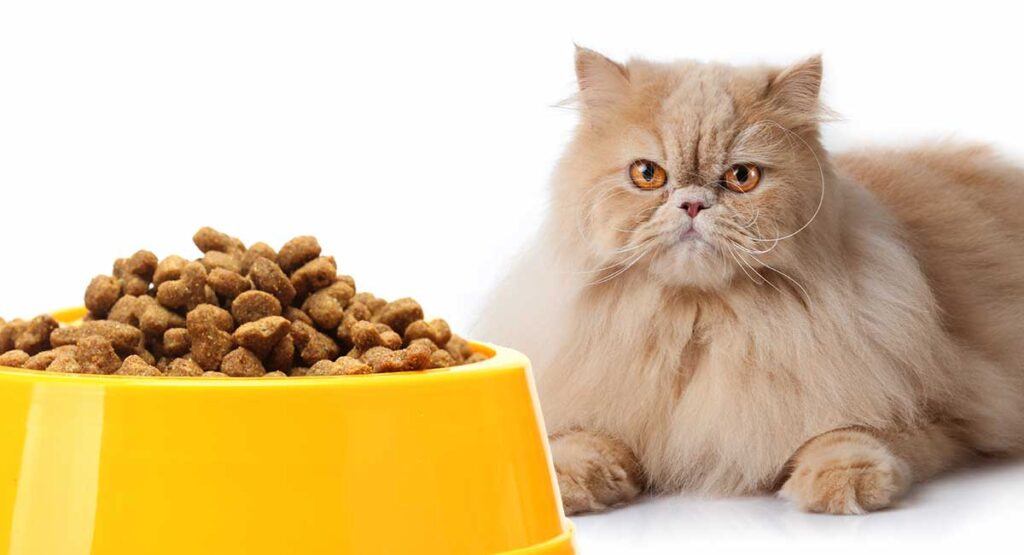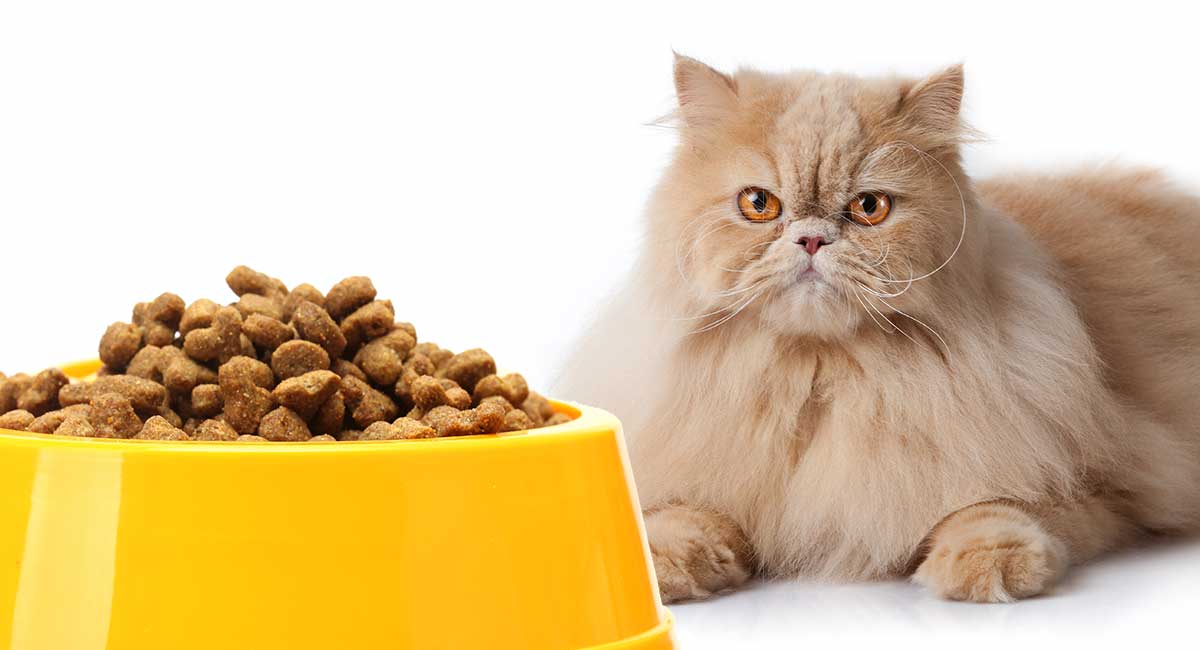Are you a cat lover? Specifically, do you have a soft spot for Persian cats? These fluffy beauties are not only known for their distinctive appearance but also have unique nutritional needs. If you own a Persian cat or are planning to get one, it’s important to understand what they require in terms of their diet. In this article, we will delve into the nutritional needs of Persian cats and discuss the importance of providing them with a balanced and appropriate diet. So, if you’re curious about how to keep your Persian cat healthy and happy through their diet, keep reading!
First and foremost, it’s crucial to know that Persian cats have specific dietary requirements. Due to their long, luxurious coats, they are more prone to hairballs and digestive issues. Therefore, feeding them the right kind of food is essential to avoid these problems. Additionally, Persian cats are also prone to obesity, so monitoring their food intake and providing them with a diet that supports their overall well-being is vital. In this article, we will explore the types of food that are suitable for Persian cats, including the important nutrients they need, such as protein, fiber, and vitamins. By understanding their nutritional needs, you’ll be able to make informed choices when it comes to feeding your beloved Persian cat. Stay tuned for more details in the upcoming article!

The Nutritional Needs of Persian Cats
Persian cats are known for their beautiful, luxurious coats and striking appearance. However, maintaining their health and ensuring their well-being goes beyond just their physical appearance. Proper nutrition plays a crucial role in the overall health and happiness of Persian cats. In this article, we will explore the importance of proper nutrition for Persian cats, their specific dietary requirements, and how to choose the right cat food for them.
Importance of Proper Nutrition for Persian Cats
Proper nutrition is vital for the overall health and longevity of Persian cats. A well-balanced diet provides the necessary nutrients for their body to function optimally and can prevent various health issues. A healthy diet helps support their immune system, maintains proper weight, and promotes healthy digestion. It also contributes to a shiny coat, strong bones, and vibrant eyes.
Dietary Requirements for Persian Cats
Persian cats have specific dietary requirements that are different from other cat breeds. They require a diet that is rich in high-quality proteins, healthy fats, and essential vitamins and minerals. Additionally, Persian cats have a unique need for taurine, an essential amino acid.
Choosing the Right Cat Food for Persian Cats
When selecting cat food for your Persian cat, it is essential to choose a high-quality brand that meets their specific nutritional needs. Look for cat food that is specially formulated for Persian cats and is rich in animal-based proteins. Avoid foods that contain excessive fillers and artificial additives. It is also recommended to consult with your veterinarian to determine the best cat food options for your Persian cat.
High-Quality Protein Sources for Persian Cats
Proteins are an essential part of a Persian cat’s diet. They provide the necessary amino acids for their overall health and well-being. Look for cat food that includes high-quality protein sources like chicken, turkey, or fish. These animal-based proteins are easier for Persian cats to digest and absorb.
The Role of Essential Fatty Acids in Persian Cat Nutrition
Essential fatty acids, such as omega-3 and omega-6, are crucial for Persian cat nutrition. They promote healthy skin and coat, reduce inflammation, and support brain function. Look for cat food that contains natural sources of essential fatty acids, like fish oil or flaxseed oil.
The Importance of Vitamins and Minerals for Persian Cats
Vitamins and minerals are essential for Persian cats’ overall health and well-being. They play a vital role in maintaining a strong immune system, healthy bones, and proper organ function. Ensure that the cat food you choose for your Persian cat contains appropriate levels of vitamins and minerals, especially vitamin E, vitamin B, and minerals like calcium and phosphorus.
Understanding the Importance of Taurine for Persian Cats
Taurine is an essential amino acid for Persian cats. It is necessary for maintaining healthy vision, heart function, and reproductive health. Persian cats have a higher risk of taurine deficiency compared to other cat breeds, so it is crucial to ensure they receive adequate amounts of taurine in their diet. Look for cat food that specifically mentions the inclusion of taurine in its ingredients.
Different Types of Cat Food for Persian Cats
There are different types of cat food available for Persian cats, including dry kibble, wet food, and homemade diets. Dry kibble is convenient and helps promote dental health. Wet food provides additional hydration and can be beneficial for cats with urinary tract issues. Homemade diets are an option but require careful planning and guidance from a veterinarian or a veterinary nutritionist to ensure proper nutrition.
Feeding Guidelines for Persian Cats
Feeding guidelines for Persian cats may vary depending on their age, activity level, and overall health. It is recommended to divide their daily food portions into multiple smaller meals throughout the day to prevent overeating and regulate their blood sugar levels. Consult with your veterinarian to determine the proper feeding schedule and portion sizes for your Persian cat.
The Benefits of Wet Food for Persian Cats
Wet food can offer several benefits for Persian cats. It provides additional hydration, which is essential for maintaining kidney health. It also contains higher moisture content, which can help prevent urinary tract issues, including bladder stones. Wet food can also be more appealing to picky eaters and can help them maintain a healthy weight.
The Dangers of Overfeeding Persian Cats
Overfeeding Persian cats can lead to obesity, which comes with its own set of health problems. Obesity increases the risk of diabetes, heart disease, and joint issues. It can also worsen existing respiratory problems that are common in Persian cats, such as snoring and difficulty breathing. It is important to monitor your Persian cat’s weight and provide them with appropriate portion sizes to prevent overfeeding.
Common Nutritional Issues in Persian Cats
Although Persian cats are generally healthy, they can be prone to certain nutritional issues. Some common problems include obesity, urinary tract issues, and food allergies. Regular veterinary check-ups and a well-balanced diet can help prevent and manage these issues. If you notice any changes in your Persian cat’s appetite, weight, or behavior, it is important to consult with a veterinarian.
Special Dietary Considerations for Senior Persian Cats
As Persian cats age, their nutritional needs may change. Senior Persian cats may require a diet that is lower in calories to prevent weight gain and reduce the strain on their joints. They may benefit from food formulated specifically for senior cats, which typically contains additional nutrients for joint support and overall health. Regular check-ups and discussions with your veterinarian can help ensure your senior Persian cat receives the appropriate nutrition.
Conclusion
Proper nutrition is key to maintaining the health, happiness, and longevity of Persian cats. Their specific nutritional needs, including high-quality proteins, essential fatty acids, vitamins, minerals, and taurine, must be met through a well-balanced diet. Choosing the right cat food, monitoring portion sizes, and avoiding overfeeding are crucial for their overall well-being. Understanding and addressing common nutritional issues and considering special dietary considerations for senior cats can help ensure your Persian cat leads a healthy and fulfilling life.
Common Questions about Persian Cats:
-
What should I feed my Persian cat?
- Persian cats should be fed a high-quality cat food that is specifically formulated for their nutritional needs. Look for cat food that includes high-quality protein sources, essential fatty acids, vitamins, minerals, and taurine.
-
How much should I feed my Persian cat?
- The amount of food to feed your Persian cat may vary depending on their age, activity level, and overall health. It is recommended to consult with your veterinarian to determine the proper feeding schedule and portion sizes for your Persian cat.
-
Can I feed my Persian cat homemade food?
- Homemade diets can be an option for Persian cats, but they require careful planning and guidance from a veterinarian or a veterinary nutritionist to ensure proper nutrition. It is important to ensure they receive all the necessary nutrients in the right proportions.
-
Do Persian cats have specific dietary requirements?
- Yes, Persian cats have specific dietary requirements. They require a diet that is rich in high-quality proteins, essential fatty acids, vitamins, minerals, and taurine.
-
What are the risks of overfeeding my Persian cat?
- Overfeeding Persian cats can lead to obesity, which increases the risk of various health issues, such as diabetes, heart disease, and joint problems. It can also worsen existing respiratory problems common in Persian cats.
-
Are Persian cats prone to any nutritional issues?
- Persian cats can be prone to certain nutritional issues, including obesity, urinary tract issues, and food allergies. Regular veterinary check-ups and a well-balanced diet can help prevent and manage these issues.
-
How can I ensure my senior Persian cat receives the appropriate nutrition?
- Senior Persian cats may require a diet that is lower in calories to prevent weight gain and reduce strain on their joints. Food formulated specifically for senior cats can provide additional nutrients for their overall health and well-being.
-
What role does taurine play in the nutrition of Persian cats?
- Taurine is an essential amino acid for Persian cats. It plays a crucial role in maintaining healthy vision, heart function, and reproductive health. Persian cats have a higher risk of taurine deficiency compared to other cat breeds, so it is important to ensure they receive adequate amounts of taurine in their diet.
-
Can wet food be beneficial for Persian cats?
- Wet food can offer several benefits for Persian cats, including additional hydration, higher moisture content, and appeal to picky eaters. It can also help prevent urinary tract issues and assist in maintaining a healthy weight.
-
How often should I feed my Persian cat?
- Persian cats are typically fed multiple smaller meals throughout the day to prevent overeating and regulate their blood sugar levels. Consult with your veterinarian to determine the proper feeding schedule for your Persian cat.
